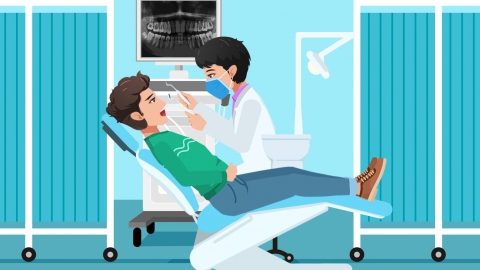How long does it take to get a dental prosthesis fitted?
Dental restoration times vary depending on the method used. Removable dentures take about 1–2 weeks, fixed prostheses such as porcelain crowns require 2–3 weeks, and dental implants typically need 3–6 months, with specific timelines influenced by individual oral conditions. If any physical discomfort occurs, it is recommended to seek medical attention promptly and follow professional medical advice for treatment.

The fabrication process for removable dentures is relatively simple. During the first visit, the dentist takes an impression of the mouth and designs the denture framework and base accordingly. Preliminary production usually takes about one week. After a second visit for fitting and adjustments, if the fit and bite are satisfactory, final completion can occur within 1–2 days, resulting in a total timeframe of 1–2 weeks.
For fixed dental prostheses, adjacent teeth on both sides of the missing tooth must first be ground down and prepared. An impression is then taken and sent to a laboratory to fabricate the crown, which takes approximately 1–2 weeks. During this period, a temporary crown is placed to protect the prepared teeth. Once the permanent crown is ready, the patient returns for placement and cementation, completing the process in about 2–3 weeks. Dental implants require surgical placement of the implant and a healing period for osseointegration between the implant and jawbone. After the initial surgery, 3–6 months are generally needed for the implant to fully integrate with the bone before the final crown can be made and attached, making the entire process significantly longer.
In terms of daily care, proper cleaning after dental restoration is essential. Removable dentures should be taken out and cleaned daily, while fixed prostheses and dental implants require gentle brushing with a soft-bristled toothbrush and flossing to clean inter-dental spaces. Avoid chewing hard foods with dentures to prevent damage. Regular dental check-ups are important to assess denture fit and overall oral health, and any looseness or pain should be addressed promptly through professional adjustment.




